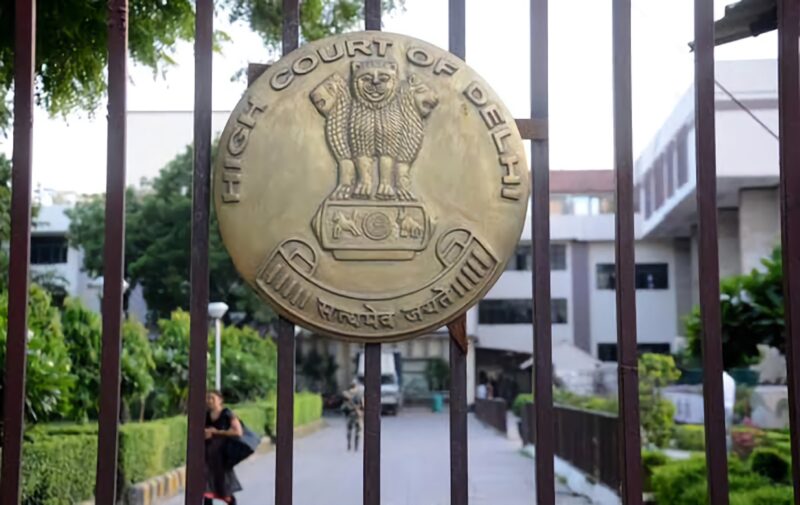Delhi High Court grants parents right to use deceased son’s frozen sperm for surrogacy After They Won The Case, setting Rule For posthumous reproduction laws
In a landmark case in India, a grieving couple has secured the right to use their deceased son’s frozen sperm to have a grandchild through surrogacy. After a four-year legal battle, the Delhi High Court has ruled in favor of Harbir Kaur and Gurvinder Singh, allowing them access to their unmarried son Preet Inder Singh’s frozen semen, which had been stored prior to his death. This ruling marks a significant moment in the legal landscape surrounding posthumous reproduction in India.
The Tragic Loss of a Son
The couple’s son, Preet Inder Singh, had been diagnosed with Non-Hodgkin’s Lymphoma, a type of blood cancer, in June 2020. Before undergoing chemotherapy, which can negatively affect fertility, doctors at Delhi’s Ganga Ram Hospital advised Preet to store his sperm for future use. On June 27, 2020, Preet agreed to freeze a sample. Sadly, he passed away in September that year, leaving behind his grieving parents.
In their immense grief, Harbir Kaur and Gurvinder Singh sought to use their son’s frozen semen to fulfill their dream of having a grandchild and continuing their family legacy. However, Ganga Ram Hospital refused to release the semen, stating that there were no clear legal guidelines in India that allowed for posthumous reproduction using the sperm of an unmarried deceased individual.
The Legal Battle
Determined to carry on their son’s legacy, the couple filed a petition with the Delhi High Court, arguing that as Preet’s legal heirs, they had a right to his genetic material. Additionally, they emphasized their desire to raise any child born through surrogacy and pointed out that their daughters had agreed to take responsibility for the child in the event of their death.
The hospital’s refusal to release the sample was based on the lack of clear laws governing such situations, as Indian law primarily addresses surrogacy and assisted reproductive technology (ART) in the context of infertile couples or married individuals. The Indian government also opposed the couple’s plea, arguing that surrogacy laws in the country were not intended to assist people in creating grandchildren but were designed to help infertile couples or women facing reproductive challenges.
The central issue was whether Preet had given explicit consent for the use of his sperm after his death. While the hospital claimed that it could not legally release the sperm without consent, the couple’s lawyer, Suruchii Aggarwal, argued that Preet had agreed to store the semen for IVF purposes, a form that bore both his and his father’s phone numbers as contacts. Furthermore, the lawyer pointed out that the family had been paying the lab fees to maintain the sperm sample, which implied consent.
The Court’s Decision
Justice Prathiba Singh, who presided over the case, acknowledged that there is no law in India explicitly prohibiting posthumous reproduction. The judge also noted that Preet had intended for his sperm to be used for IVF and concluded that since Preet was unmarried and had no children, his parents were the legal heirs under the Hindu Succession Act. This entitled them to his genetic material, which is considered property.
Citing similar cases from around the world, including a 2002 case in Israel where the parents of a soldier killed in Gaza were allowed to use their son’s sperm, Justice Singh ruled in favor of the couple. The judge further emphasized that, since Preet had provided consent for the semen to be used for reproductive purposes, his parents had the right to use it to fulfill their dream of having a grandchild.
Global Precedents and Reactions
The case in India is rare but not unprecedented. Globally, countries have varying laws on posthumous reproduction. In the U.S., U.K., and some other countries, the practice is permitted with written consent from the deceased. However, countries like Italy, France, and Switzerland prohibit it altogether. In Israel, posthumous reproduction requests have risen, especially among the bereaved families of soldiers.
India’s ART Act, which was introduced to regulate surrogacy practices and prevent commercial exploitation, was cited in opposition to the couple’s request. The act bans single individuals from opting for surrogacy, and the government argued that Preet’s parents did not have the right to use his sperm without his explicit consent. However, the court ruled that the ART Act does not impede on personal freedoms, especially in cases where the intent for reproduction had already been established.
A New Hope for the Family
Following the court’s decision, Harbir Kaur expressed her relief and joy, saying, “We were very unlucky, we lost our son. But the court has given us a very precious gift. We would now be able to get our son back.” The couple is now considering using Preet’s sperm in surrogacy, with one of their daughters agreeing to act as the surrogate mother to keep the process within the family.
Ms. Kaur, speaking to the BBC, highlighted the emotional depth of the decision, stating,
“He is the screensaver on my phone. I start my day by looking at his face every morning.” For her, the ruling represents a “glimmer of hope” and a means to fulfill her son’s “unfulfilled desires.”









Join our Channel...